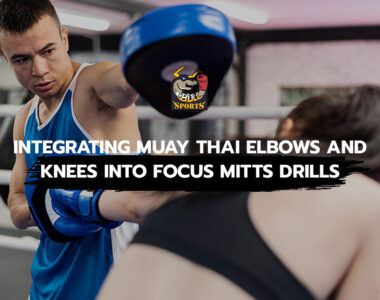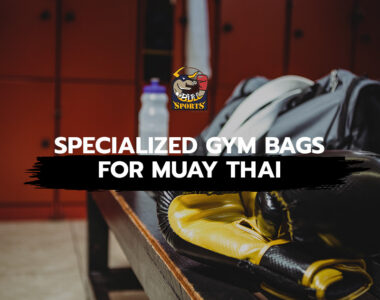
Samart Payakaroon, famously known as the “Jade-Faced Tiger” for his striking looks and fierce fighting spirit, has a name that commands respect in the world of Muay Thai. “Payak,” meaning “tiger” in Thai, suitably captures his combination of skill, agility, and charisma, which have solidified his status as one of the sport’s all-time greats. This article explores the extraordinary journey of Samart Payakaroon, detailing his legendary Muay Thai career, achievements beyond the ring, his training gym, and his impressive fight record.
Explore the Story of Samart Payakaroon
Samart Payakaroon, born Samart Thipthamai on December 5, 1962, began his Muay Thai training at 11. His first fight took place in 1974 in Chonburi Province, where he competed in over a hundred bouts across eastern Thailand before moving to Bangkok in 1979 to fight at the famous Lumpinee Boxing Stadium. Known for his captivating style and skillful techniques, Samart achieved remarkable success in Muay Thai, winning Lumpinee Stadium championships in four weight classes: Pinweight (105 lbs), Junior Flyweight (108 lbs), Junior Bantamweight (115 lbs), and Featherweight (126 lbs).
In 1983, Samart transitioned to professional boxing, winning his debut match on points. After nine consecutive knockouts, he earned a chance to compete for the World Boxing Council (WBC) Super Bantamweight title. In an unforgettable match, he knocked out Mexican boxer Guadalupe Pintor in the fifth round, claiming the title and becoming Thailand’s tenth world champion.
One of Samart’s most iconic victories came during his first title defense against Mexican boxer Juan Meza. Samart won by technical knockout (TKO) in the twelfth round, in a fight that is still remembered for his exceptional defense. Leaning back against the ropes, he skillfully avoided more than 20 punches before delivering a powerful counter that sent Meza to the canvas.
As his career progressed, however, discipline and weight management became challenges. During his second title defense against Jeff Fenech, Samart struggled with weight cuts, which affected his performance and led to a fourth-round TKO loss. Following this, there were rumors of match-fixing, which Samart addressed by taking an oath at Wat Phra Kaew (Temple of the Emerald Buddha) and temporarily ordaining as a monk to affirm his sincerity.
After losing his title, Samart fought two more professional boxing matches before returning to Muay Thai, where he continued to dominate, defeating many top fighters of his era. In 1988, he received the Outstanding Muay Thai Fighter Award from the Sports Writers Association of Thailand. As his fame grew, Samart ventured into the entertainment industry, which limited his training time and affected his performance, leading to his eventual retirement following a tough loss to Wangchannoi Sor Palangchai.
In 1993, Samart made a brief return to boxing, winning five warm-up matches before challenging Venezuelan Eloy Rojas for the WBA Featherweight title in 1994. He lost by TKO in the eighth round and subsequently retired from fighting.
Achievements Beyond Muay Thai
After achieving remarkable success as a fighter, he transitioned into the entertainment and music industry, becoming a famous singer and actor in Thailand. He released multiple albums, with his voice becoming nearly as iconic as his fighting style, elevating him to the status of a beloved public figure in Thailand.
Alongside his entertainment career, Samart has remained deeply committed to Muay Thai. He frequently appears at martial arts events and actively supports the growth of Muay Thai both nationally and internationally, reflecting his dedication to the sport.
Today, Samart continues to be involved in entertainment and is occasionally invited to train fighters abroad. He has previously served on the international committee of the Professional Boxing Association of Thailand and was also the former President of the Thai Martial Arts Association of Nai Khanom Tom.
Introducing Samart Payakaroon Gym
Driven by his passion for Muay Thai and a desire to give back to the community, Samart Payakaroon founded the Samart Payakaroon Gym in 2009. Since then, it has become a premier training destination for fighters from Thailand and worldwide. With a focus on expert technique, high-quality instruction, and a welcoming environment, the gym offers a space where fighters of all levels can train under the direct guidance of Samart himself.
Samart actively supports and promotes his fighters in the professional arena, helping them gain essential exposure and build their careers. Beyond top-quality training, the gym places great emphasis on cleanliness and comfort. Foreign students are encouraged to immerse themselves in Thai culture, language, and the traditional lifestyle of Muay Thai fighters, creating a rich and authentic learning experience. Every coach is personally trained and certified by Samart, bringing both expertise and a friendly, professional attitude to their work with trainees.
Located in Bangkok’s Sai Mai district, the gym is nestled in lush greenery, providing a peaceful, Thai-inspired setting ideal for focused training. Conveniently close to shopping centers, restaurants, banks, and a hospital, trainees have easy access to essential amenities, enhancing their stay. With Sai Mai’s pleasant climate and the gym’s tranquil atmosphere, Samart Payakaroon Gym is the perfect place to train and experience Muay Thai in an exceptional and supportive environment.
Samart Payakaroon’s Record and Achievements
Samart Payakaroon built an impressive record throughout his career, defeating some of the sport’s toughest opponents and repeatedly proving his skill. Competing primarily at the renowned Lumpinee Stadium, he earned titles across multiple weight divisions, showcasing his technical mastery in Muay Thai. Transitioning to Western boxing, Samart also achieved remarkable success, winning the WBC super-bantamweight title and establishing himself as a versatile athlete.
His success in both Muay Thai and Western boxing highlights his adaptability and technical prowess, allowing him to excel at the highest levels in two distinct disciplines. This versatility has set a high standard for fighters globally, cementing Samart’s status as an icon in combat sports.
Samart Payakaroon’s Record
- Muay Thai: 150 fights, 130 wins (30 by knockout), 18 losses, and 2 draws
- Boxing: 23 fights, 21 wins (12 by knockout), and 2 losses (both by knockout)
Samart Payakaroon’s Major Accomplishments
- 1980 Lumpinee Stadium Pinweight (102 lbs) Champion
- 1980 Lumpinee Stadium Mini Flyweight (105 lbs) Champion
- 1981 Lumpinee Stadium Super Flyweight (115 lbs) Champion
- 1981 Lumpinee Stadium Featherweight (126 lbs) Champion
- 1986 WBC Boxing Super Bantamweight Champion
Samart Payakaroon’s journey is a true reflection of talent and versatility. His remarkable achievements in Muay Thai, his successful ventures in entertainment, and his dedication to mentoring future generations have solidified his legacy in both the sport and Thai culture. As the “Jade-Faced Tiger,” Samart continues to inspire fighters and fans around the world, ensuring that his influence endures for generations to come.
Thank you for the photo from SAMART PAYAKAROON GYM Muay Thai Camp In Bangkok
Related Articles
Getting to Know Buakaw, One of the Most Well-Known Thai Boxers



